B.S. in Biomedical Engineering
Biomedical engineering is an inherently interdisciplinary field that lies at the intersection of engineering and the biological and health sciences. Biomedical engineers use the principles of engineering to develop solutions for a wide variety of products and technologies that improve the quality of life. Students majoring in biomedical engineering will have the satisfaction of being actively engaged in a discipline that has human health and welfare as its primary focus.
The BS Biomedical Engineering program has been designed, in consultation with potential employers, to prepare graduates for the wide variety of emerging careers that include biomedical devices, bioelectronics and instrumentation, imaging, bioinformatics, and manufacturing, among others. The coursework has been designed to prepare students to function effectively in a U.S. Food & Drug Administration-regulated environment. This program also incorporates soft skills, such as communications skills and team work, necessary for professional success in the global marketplace and lifelong learning. Development of the ability to address and deal with ethical issues, which are of paramount importance in biomedical engineering, and communications skills are integrated into the classes throughout the curriculum.
The Biomedical Engineering Bachelor of Science degree program is accredited by the Engineering Accreditation Commission of ABET, www.abet.org, under the General Program Criteria and the Bioengineering and Biomedical and Similarly Named Engineering Programs Program Criteria.
Enrollment and Graduation Data
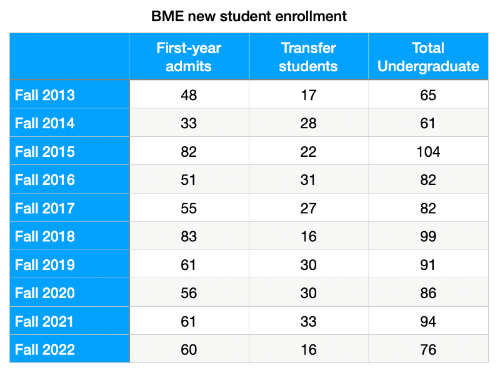
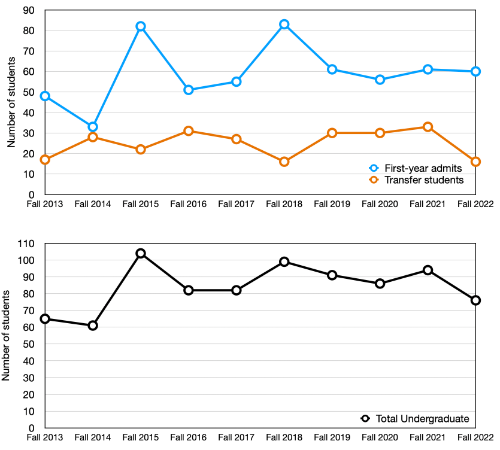
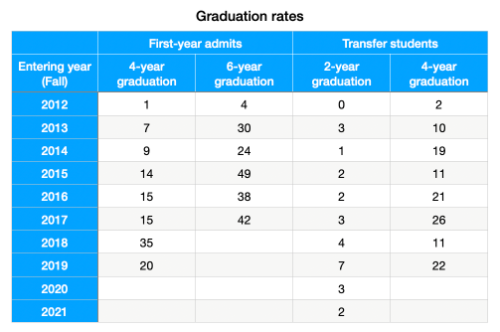
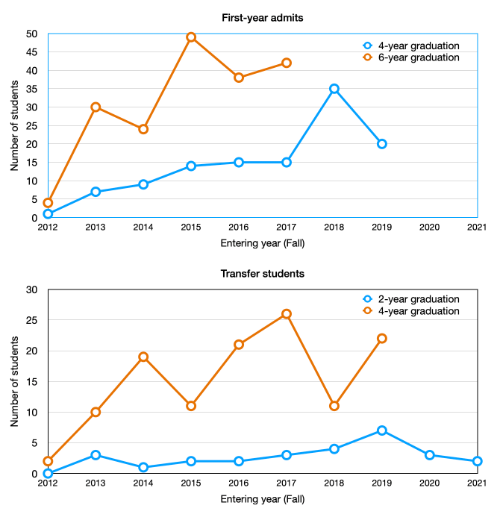
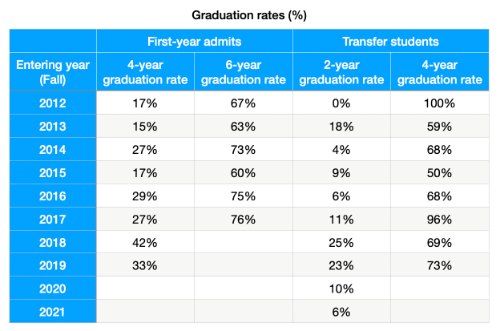

Program Resources
BS-BME Program Orientation
Orientation videos (recorded in Fall 2020)